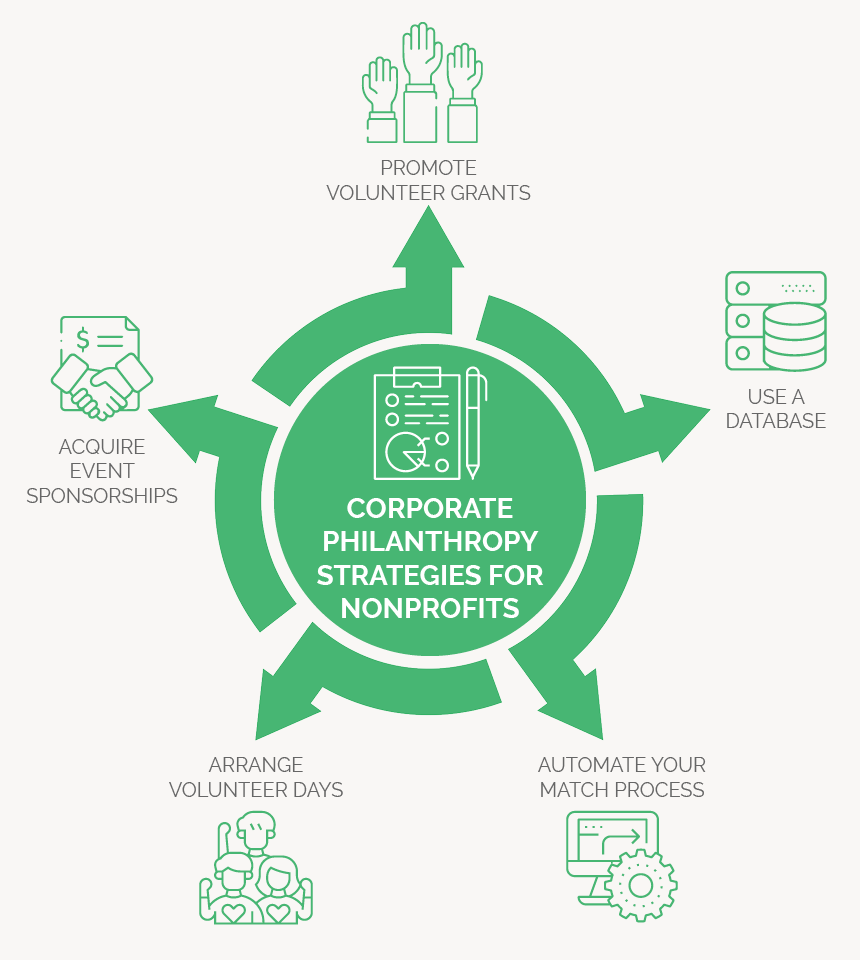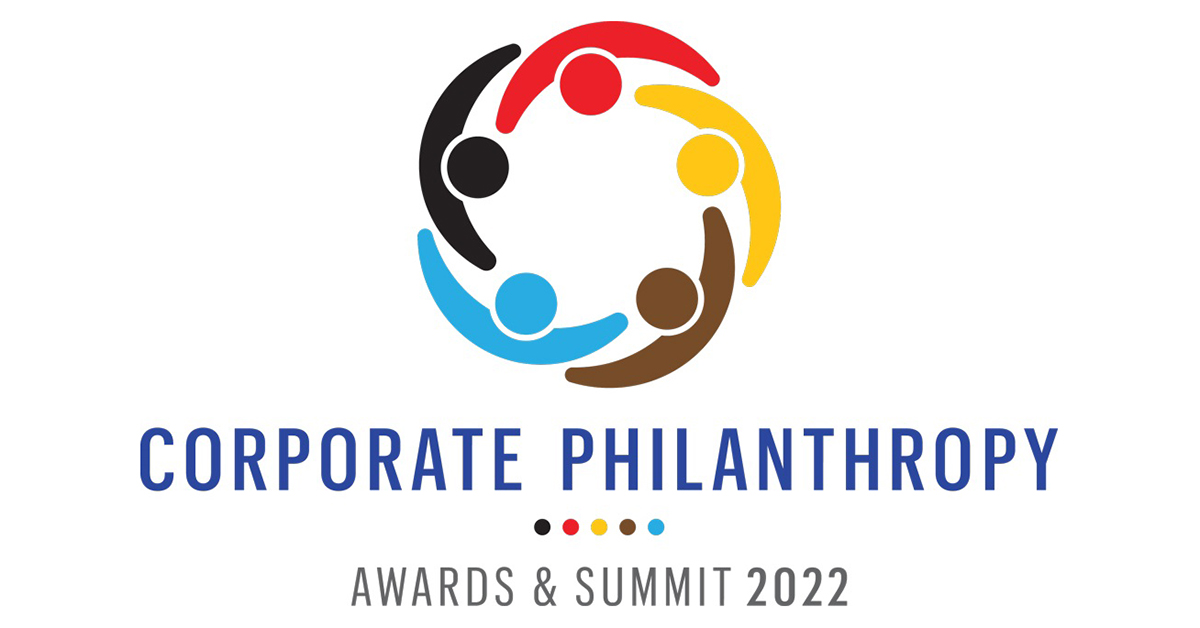Measuring the impact of your corporate philanthropy strategy
Exploring Exactly How Business Philanthropy Shapes Brand Online Reputation and Client Commitment
Business philanthropy greatly affects brand track record and client commitment. Business that participate in genuine philanthropic efforts usually see a positive shift in just how consumers view them. This positioning of worths cultivates count on and psychological connections with audiences. Nonetheless, the performance of these kind efforts can differ significantly. Comprehending what really reverberates with consumers is important for brands seeking to boost their social influence and market setting. What techniques will arise as essential for future success?
The Evolution of Business Philanthropy
As businesses significantly identify their role in society, the development of corporate philanthropy has actually transformed from plain charitable contributions to a tactical component of brand identity. Companies engaged in philanthropy mainly for tax benefits or to improve their public image. Gradually, this technique shifted as stakeholders-- consisting of capitalists, consumers, and workers-- required a much more authentic commitment to social obligation.
Organizations began straightening their humanitarian campaigns with their core worths and company objectives, causing even more impactful and thoughtful contributions. This adjustment has actually urged business to purchase lasting methods and community advancement, promoting a sense of function that reverberates with customers.
Technical improvements have facilitated openness and engagement, permitting businesses to display their kind efforts much more successfully. Subsequently, company philanthropy has emerged as an essential component of business strategy, with organizations embracing the possibility to favorably influence society while improving their overall brand name story.
The Impact of Philanthropy on Brand Name Perception
While firms participate in philanthropic efforts to promote social good, these efforts greatly shape brand assumption amongst consumers. Business philanthropy can enhance a brand name's photo by connecting it with positive social effect and community involvement. Consumers often view brand names that actively get involved in philanthropic tasks as even more trustworthy and responsible. This understanding can affect investing in choices, as consumers may choose brand names that show a commitment to social problems.

Structure Emotional Connections Via Giving
Business philanthropy acts as an effective tool for improving brand identification by connecting corporate worths with neighborhood needs. Via strategic giving, firms can promote neighborhood involvement and develop shared values that reverberate with customers on a psychological degree. This method not just reinforces brand reputation however additionally constructs enduring links between businesses and their stakeholders.
Enhancing Brand Identity
When business engage in kind initiatives, they not only add to societal excellent yet additionally build deeper psychological links with their audiences. By straightening their brand with charitable causes, firms improve their identification and signal values that reverberate with customers. This alignment develops a narrative that exceeds solutions and items, inviting consumers to take part in a shared objective. As consumers progressively prioritize purpose-driven brand names, firms that actively participate in giving can separate themselves in a crowded market. Such campaigns foster a feeling of loyalty among consumers that really feel personally linked to the brand name's worths. Ultimately, corporate philanthropy comes to be a crucial device for enhancing brand name identification, cultivating long lasting connections based on shared beliefs and psychological involvement.
Fostering Community Interaction
Various research studies indicate that business involving in community-focused humanitarian efforts can significantly strengthen emotional connections with their stakeholders. By investing in regional jobs and supporting social causes, businesses cultivate a sense of belonging and depend on within the neighborhood. This involvement fosters a positive brand name image, as customers value companies that show authentic worry for social issues. Workers usually really feel extra happy and inspired to be connected with an organization that prioritizes neighborhood welfare. Consequently, customers are extra most likely to develop loyalty in the direction of brand names that proactively add to purposeful reasons. Ultimately, promoting community engagement via philanthropy not only improves brand reputation yet additionally builds long-term emotional ties that benefit both the area and the company it offers.
Creating Shared Values
Exactly how can organizations successfully produce shared values that reverberate with their stakeholders? Business can attain this by aligning their philanthropic efforts with their core goal and the interests of their areas. By engaging in campaigns that resolve regional demands, organizations promote emotional links with customers, boosting brand name commitment. Partnering with non-profits that reflect shared worths enhances the brand's picture and demonstrates dedication to social responsibility. In addition, transparent interaction regarding these efforts enables stakeholders to see the tangible influence of their payments. Inevitably, by integrating shared worths right into their business philanthropy, companies not only boost their credibilities but likewise grow long-term connections with consumers, leading to boosted loyalty and trust. This alignment is necessary in contemporary customer decision-making.
Instance Researches: Successful Philanthropic Campaigns
Analyzing successful humanitarian projects reveals numerous methods that enhance brand online reputation. Impactful neighborhood initiatives, ingenious partnership models, and lasting interaction approaches have shown effective in fostering positive connections with consumers. These instance studies highlight the importance of thoughtful company offering in attaining both social and service goals.
Impactful Community Initiatives
Lots of companies have effectively leveraged philanthropic campaigns to improve their brand online reputation while making a significant influence in their communities. For example, a technology firm released an electronic literacy program in underserved communities, offering training and resources that empowered regional citizens. This initiative not only added to community growth but likewise placed the firm as a socially accountable leader. Likewise, a major food business implemented an appetite alleviation campaign, partnering with regional nonprofits to disperse meals to households in need. This initiative enhanced area ties and promoted consumer loyalty. With these impactful initiatives, companies have demonstrated their commitment to social responsibility, efficiently straightening their brand name values with the needs of the areas they offer, ultimately enhancing their total credibility.
Innovative Collaboration Designs
The success of impactful community campaigns typically depends upon innovative partnership versions that combine varied stakeholders to address complicated social challenges. Study highlight how companies, non-profits, and federal government entities can collaborate successfully. An international firm partnered with a local charitable to introduce an education program, merging sources and expertise to improve area literacy prices. One more example involved a technology business and a medical care organization joining pressures to establish a telemedicine option for underserved populations. These collaborations not only enhanced the reach of humanitarian initiatives yet additionally reinforced the brands' online reputations by aligning their missions with area demands. Eventually, cutting-edge partnership models act as a driver for meaningful change and foster stronger links in between brands and their customers.
Long-lasting Interaction Strategies

Determining the ROI of Corporate Social Obligation
As business significantly purchase corporate social duty (CSR) initiatives, understanding the roi (ROI) related to these efforts comes to be vital. Measuring ROI in CSR is diverse, typically incorporating both qualitative and quantitative metrics. Monetary returns can be examined via enhanced sales, enhanced brand name commitment, and improved worker spirits, which can lead to greater efficiency. Additionally, business might analyze cost savings connected to sustainable methods, learn this here now such as minimized waste or energy consumption.
Qualitatively, the effect of CSR on brand name online reputation can be evaluated via consumer perception research studies and social media belief evaluation. Studies can provide insights into how CSR tasks affect consumer loyalty and trust fund. Benchmarking against sector criteria can aid organizations determine their CSR efficiency - corporate philanthropy. Eventually, a detailed method to determining ROI makes it possible for business to make informed choices regarding future CSR investments, straightening strategies with both economic performance and social influence
Customer Assumptions and Corporate Obligation
Increasingly, customers expect business to operate with a strong feeling of business responsibility, checking out moral techniques as a requirement for brand name loyalty. This change in assumption mirrors an expanding awareness of ecological and social issues, leading customers to prefer brands that line up with their worths. Customers are more likely to support business that involve in transparent methods, demonstrate sustainability, and contribute positively to their neighborhoods.
Social media intensifies these expectations, permitting customers to share their viewpoints and experiences rapidly. Brand names that fail to fulfill these ethical requirements run the risk of backlash, while those that welcome company duty frequently delight in superior credibility and consumer loyalty. As consumers require liability, business must integrate corporate social obligation into their core methods, prioritizing ethical actions not equally as an advertising and marketing technique, however as an essential facet of their operations. This placement can inevitably result in stronger brand fondness and continual success in affordable markets.
Future Fads in Corporate Philanthropy and Brand Name Loyalty
The landscape of business philanthropy is developing, affected by the elevated consumer assumptions bordering company duty. Companies are significantly integrating social impact into their core organization techniques, not simply as a supplementary task. Future trends suggest a change toward openness, with brand names sharing comprehensive information about their philanthropic efforts and their direct effects on neighborhoods.
Moreover, modern technology is playing an important duty, allowing real-time interaction between brand names and consumers. Social media site systems facilitate direct communication, permitting consumers to voice their assumptions and hold brands liable. Furthermore, younger generations, specifically Millennials and Gen Z, focus on sustainability and moral practices, driving services to take on more conscientious methods.
As corporate philanthropy ends up being associated with brand identification, business that authentically align their missions with social demands are most likely to promote more powerful customer commitment. This convergence of worths will ultimately form the future of business reputation and consumer partnerships in an increasingly conscientious industry.
Frequently Asked Concerns
Exactly How Do Consumers Locate Out Regarding a Business's Philanthropic Efforts?
Consumers find a company's kind efforts with different channels, including social media, press launches, website here neighborhood events, and word-of-mouth. These opportunities help with awareness, allowing individuals to engage with brand names that line up with their passions and worths.
What Function Does Worker Involvement Play in Business Philanthropy?
Employee participation in corporate philanthropy enhances engagement, cultivates a feeling of possession, and strengthens group cohesion - corporate philanthropy. This engagement usually intensifies the effect of charitable initiatives, resulting in higher recognition and assistance for the company's kind efforts
Can Corporate Philanthropy Backfire on a Brand name's Track record?
Company philanthropy can undoubtedly backfire on a brand's online reputation if perceived as opportunistic or insincere. Adverse public assumption may emerge, resulting in decreased count on and loyalty among customers that prioritize authenticity in business activities.
Are Smaller Sized Firms as Effective in Philanthropy as Larger Firms?
Smaller companies can be just as efficient in philanthropy as bigger corporations, commonly showing dexterity and credibility. Their localized efforts may reverberate a lot more deeply with neighborhoods, fostering genuine connections regardless of limited resources contrasted to their bigger counterparts.
How Can Companies Pick the Right Triggers to Assistance?
Firms can pick the right causes by aligning their worths with neighborhood demands, analyzing stakeholder passions, and examining prospective impact. This tactical approach fosters authenticity, enhances engagement, and reinforces links with consumers and the wider community.
While companies involve in kind initiatives to promote social good, these campaigns substantially shape brand name perception among consumers. As consumers increasingly prioritize purpose-driven brands, companies that proactively engage in giving can differentiate themselves in a crowded market. Several business have successfully leveraged philanthropic campaigns to improve their brand name reputation while making a purposeful influence in their communities. Significantly, customers expect business to operate with a strong feeling of company duty, watching ethical techniques as a prerequisite for brand name loyalty. As corporate philanthropy becomes synonymous with brand identification, firms that authentically straighten their objectives with social demands are likely to promote stronger customer loyalty.